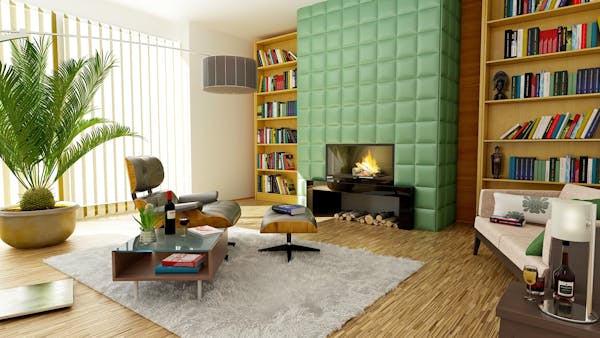In today’s fluctuating real estate market, homeowners are increasingly seeking renovation options that offer lasting value. Installing durable hardwood flooring stands out as perhaps the most intelligent investment decision for 2025, combining timeless aesthetic appeal with remarkable longevity that few other home improvements can match. As housing trends evolve, the classic elegance of wood floors continues to attract buyers and maintain its value even in uncertain economic times.
The Timeless Appeal of Natural Materials
The market analysis is clear: properties featuring durable hardwood flooring consistently command higher resale values and shorter listing periods. According to recent real estate data, homes with hardwood floors sell for an average of 2.5% more than comparable properties with other flooring types.
This premium reflects buyers’ recognition that quality wood flooring represents not just a cosmetic upgrade but a fundamental improvement to the home’s infrastructure and character.
Sustainability Factors Driving Market Demand
Environmental consciousness has dramatically shifted consumer preferences in home improvement. Today’s sustainably harvested hardwood options offer homeowners the ability to make environmentally responsible choices without sacrificing quality or aesthetics.
Many manufacturers now offer certification verifying their wood sources from responsibly managed forests, addressing concerns about deforestation while providing flooring that will last for generations.
Financial Benefits Beyond Initial Installation
While the upfront cost of premium flooring may exceed that of alternatives like laminate or vinyl, the long-term financial equation heavily favors hardwood.
With proper maintenance, quality hardwood floors can last 100+ years, eliminating replacement costs that other flooring options inevitably require. This extended lifespan effectively distributes the initial investment across decades, resulting in significantly lower annual costs.
Health and Wellness Considerations
The connection between home environments and occupant health has gained renewed attention post-pandemic. Unlike carpeting, hardwood floors don’t harbor allergens, dust mites, or pet dander, creating healthier indoor air quality.
For the 50+ million Americans suffering from allergies, this health benefit represents a compelling selling point that transcends purely aesthetic considerations.
Versatility Across Design Styles
One of hardwood’s strongest attributes is its remarkable adaptability across diverse interior design approaches. Whether complementing minimalist modern spaces, traditional settings, or eclectic design schemes, wood flooring provides a neutral foundation that enhances rather than competes with other design elements. This versatility ensures hardwood remains relevant despite evolving design trends.
Technology Advancements Enhancing Performance
Recent innovations have addressed traditional limitations of wood flooring. Enhanced finishes now offer unprecedented resistance to scratches, moisture, and UV damage. These technological improvements extend the practical applications of hardwood into spaces previously considered unsuitable, including kitchens and below-grade installations, further expanding its investment value throughout the home.
Maintenance Simplicity as a Selling Point
Unlike complex flooring options requiring specialized care, hardwood’s maintenance requirements remain straightforward. Regular sweeping and occasional refinishing represent the core of hardwood care, making it particularly attractive in today’s busy households. This maintenance simplicity translates to real savings in both time and specialized cleaning products over the floor’s lifetime.
The Psychological Value of Natural Elements
Research in environmental psychology consistently demonstrates that natural materials like wood contribute positively to occupants’ mental well-being. Hardwood flooring grounds living spaces with organic texture and warmth that manufactured alternatives simply cannot replicate. This psychological benefit, while difficult to quantify financially, represents a significant component of hardwood’s enduring appeal.
Investment Protection Through Refinishing Options
Perhaps hardwood’s most compelling financial advantage lies in its unique capacity for renewal. While other flooring options must be completely replaced when damaged or dated, hardwood can be sanded and refinished multiple times. This refinishing capability allows homeowners to completely transform the appearance of their floors—changing colors, finishes, and sheen levels for a fraction of replacement costs.
Market Projections Through 2030
Analysts project continued strong demand for quality hardwood flooring through 2030, with particular growth in engineered hardwood products that offer enhanced stability and installation flexibility. This sustained market interest ensures that today’s hardwood investment will maintain its appeal to future buyers, further securing the financial wisdom of choosing wood flooring in 2025.

